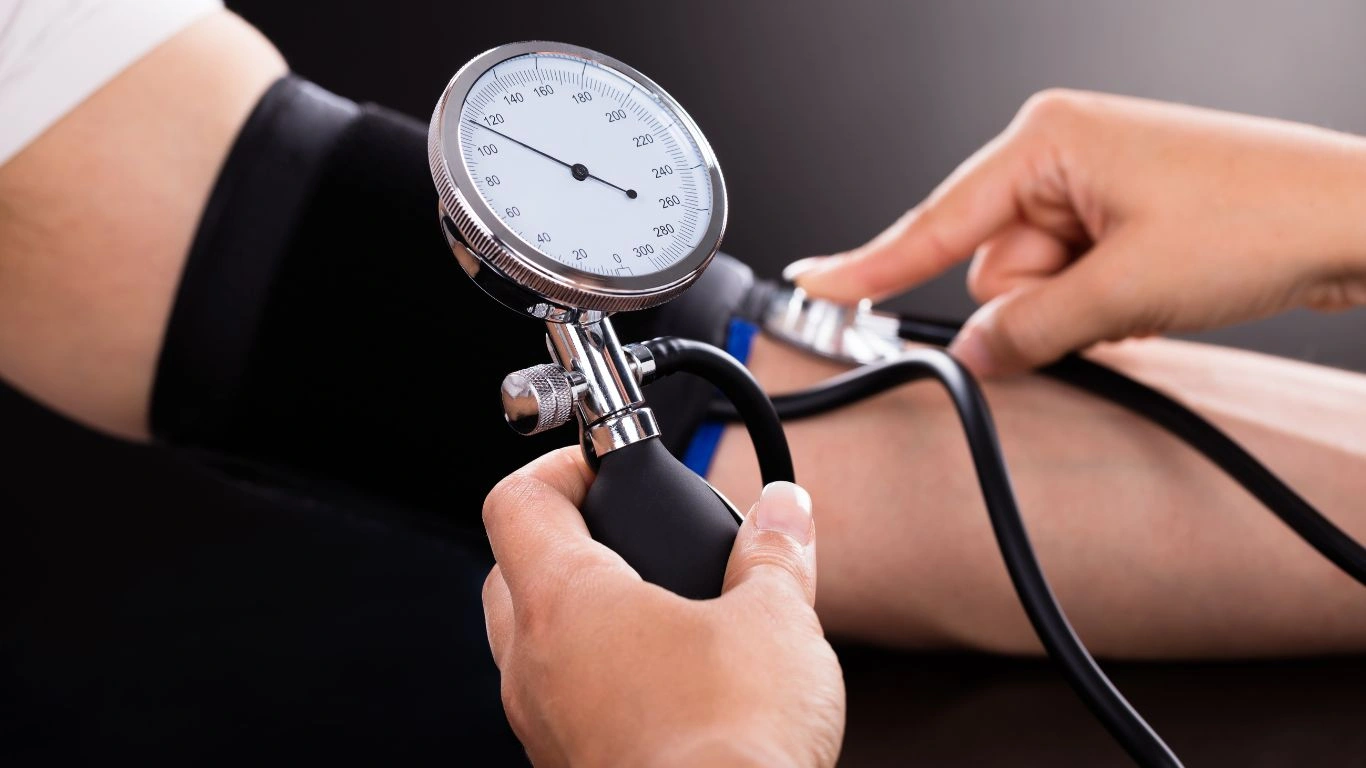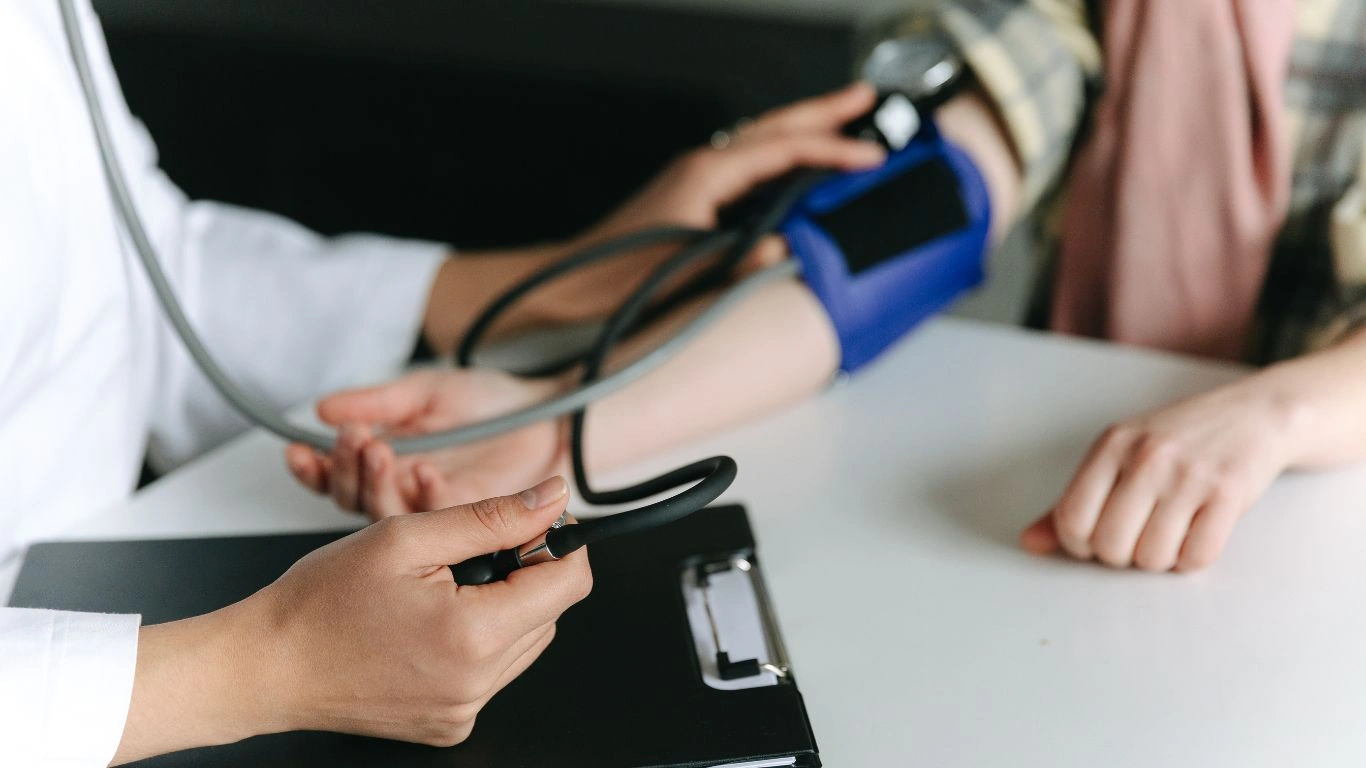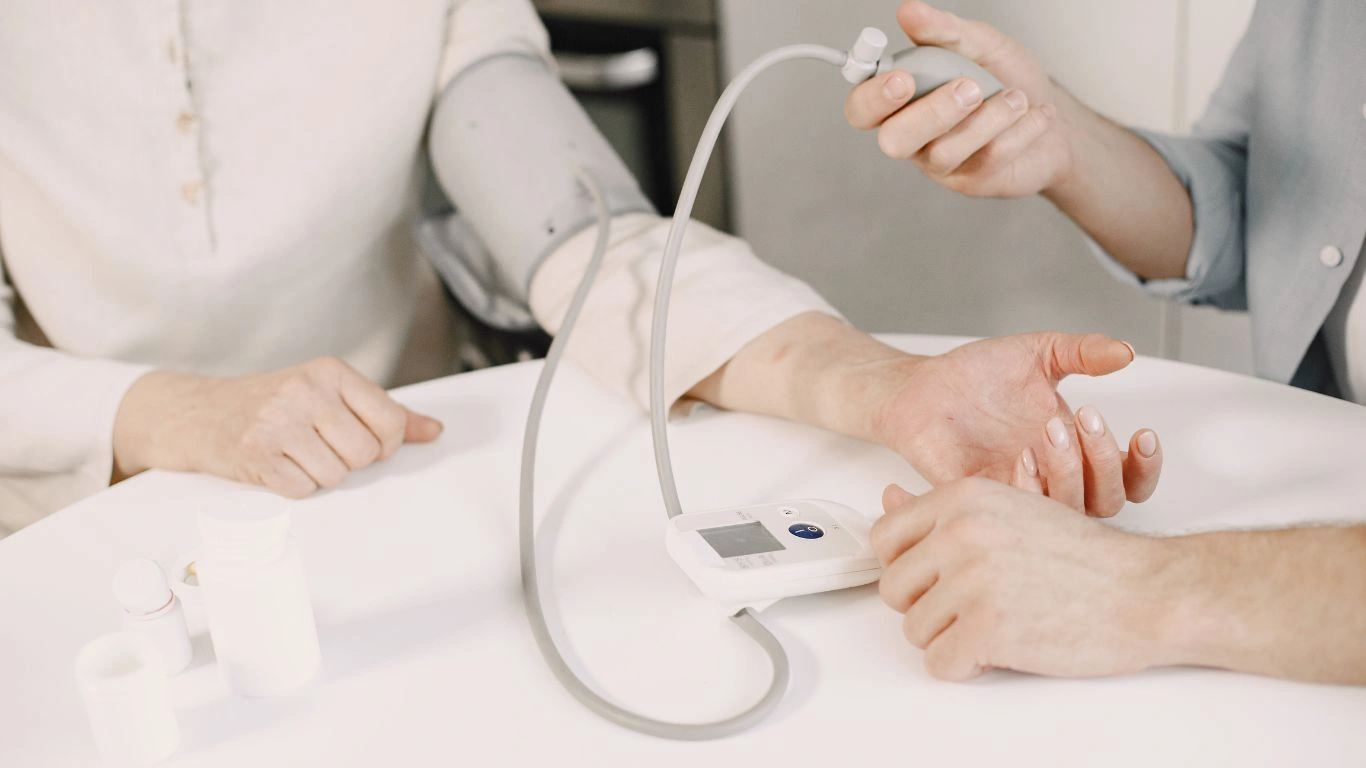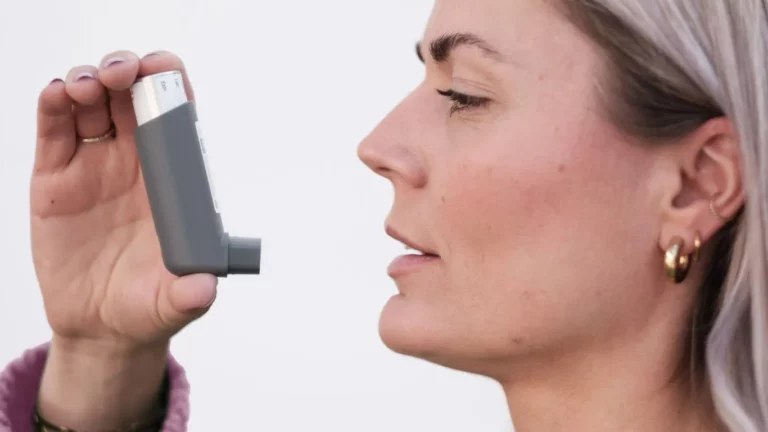High Blood Pressure and Excessive Yawning: Understanding the Connection
As an Internal Medicine Physician specializing in hypertension management, I’ve seen firsthand the complexities that high blood pressure, also known as hypertension, brings to patients’ lives. One of the more puzzling, yet significant, symptoms that often accompanies this condition is excessive yawning. While yawning is something many of us take for granted as a simple, involuntary response to tiredness or boredom, when it becomes excessive, it can be indicative of underlying health concerns. But is there a real connection between high blood pressure and excessive yawning? In this article, we’ll explore the intriguing relationship between these two, backed by science and my own experiences in clinical practice.
Understanding High Blood Pressure: What You Need to Know
Before diving into the yawning aspect, it’s crucial to understand what high blood pressure really is. Hypertension is a condition where the force of the blood against the artery walls is consistently too high. This can put additional strain on the heart and blood vessels, leading to serious health issues such as heart disease, stroke, kidney damage, and even vision problems. In fact, about one in three adults globally suffers from high blood pressure, making it a major health concern.
In many cases, high blood pressure does not present any immediate symptoms. This is why it’s often referred to as the “silent killer.” However, over time, the constant pressure on the arteries can lead to noticeable health problems. This is where the connection between hypertension and yawning becomes particularly interesting.
Could Excessive Yawning Be Linked to High Blood Pressure?
So, what does yawning have to do with all of this? The answer lies in the body’s natural response mechanisms. While yawning is often associated with tiredness, it can also be triggered by various factors, including stress, anxiety, or even changes in brain activity. Interestingly, there’s growing evidence suggesting that excessive yawning could be an indirect symptom of high blood pressure. But how exactly does this work?
The Physiology of Yawning
Let’s break down why yawning happens in the first place. Yawning is an involuntary action that usually happens when the brain needs to cool down or when there’s a drop in oxygen levels. It helps regulate the body’s temperature, increase blood flow to the brain, and increase alertness. If you’ve ever yawned after a long day of work, you can relate to how it feels like a reset for your body.
However, when you have high blood pressure, your body might be under more stress than usual. The strain on your cardiovascular system may trigger reactions like excessive yawning as a way for your body to cope. Additionally, if your hypertension is causing you to feel fatigued or stressed, your brain might increase the frequency of yawns in response. It’s a subtle yet fascinating clue that something more serious could be at play.
Is Yawning a Symptom of High Blood Pressure or a Result of Treatment?
Now, here’s where it gets a little more complicated. Yawning could either be a symptom of high blood pressure itself or a side effect of the medications used to treat hypertension. Certain antihypertensive drugs, especially those that influence the autonomic nervous system, may have yawning as a potential side effect. Some studies suggest that medications such as ACE inhibitors, beta-blockers, and calcium channel blockers can cause excessive yawning in some individuals. But before we jump to conclusions, it’s important to understand that this doesn’t mean all patients with high blood pressure or those on these medications will experience this symptom.
What Does the Research Say About High Blood Pressure and Yawning?
When I first encountered patients who reported excessive yawning, I, like many doctors, wondered if there was an underlying link to hypertension. After looking into available research, I found a few studies exploring this very question. The results were somewhat mixed, but there are some compelling findings that connect excessive yawning with cardiovascular conditions, including hypertension.
One study, in particular, found that excessive yawning might be a sign of brain dysfunction or changes in the autonomic nervous system, both of which are often associated with hypertension. The autonomic nervous system plays a role in regulating heart rate and blood pressure, so when it’s disrupted, it may result in excessive yawning. In other words, yawning could serve as an early warning sign of elevated blood pressure or an imbalanced autonomic response.

When Should You Be Concerned About Excessive Yawning?
As with many symptoms, context matters when it comes to yawning. It’s normal to yawn a few times a day, especially if you’re feeling tired or bored. However, if you find yourself yawning excessively and it’s accompanied by other symptoms like headaches, dizziness, or chest pain, this could be a sign that your blood pressure is elevated and needs to be checked.
In my practice, I often recommend that patients who experience unexplained excessive yawning, along with other concerning symptoms, schedule a blood pressure check. It’s always better to be proactive in monitoring your health, particularly if you have a family history of hypertension or other risk factors for heart disease. Excessive yawning could be a subtle signal that your body is working harder than it should be.

The Link Between Stress, Anxiety, and Yawning
We can’t ignore the powerful role stress and anxiety play in both yawning and hypertension. As many of us know, stress triggers a cascade of physiological responses that can affect heart rate, blood pressure, and overall body function. Excessive yawning, particularly in stressful situations, may be a coping mechanism, as your body tries to manage the internal pressure and maintain balance. This can be particularly true for individuals who experience chronic stress, leading to sustained hypertension over time.
Additionally, the anxiety associated with worrying about one’s health—such as the fear of having high blood pressure—can trigger both physical and emotional responses that contribute to excessive yawning. This creates a vicious cycle where stress exacerbates hypertension, which in turn leads to more yawning and a greater sense of unease.
Managing Stress to Prevent Excessive Yawning
In my practice, stress management plays a critical role in preventing or mitigating high blood pressure and its associated symptoms, like excessive yawning. Techniques such as deep breathing, mindfulness meditation, regular physical activity, and even counseling can significantly reduce stress levels. Not only do these approaches help lower your blood pressure, but they also help prevent the cycle of excessive yawning caused by anxiety or stress. I always emphasize to my patients the importance of self-care and taking proactive steps to manage their stress effectively.
The Role of Medications in Excessive Yawning and Hypertension
As we discussed earlier, one of the potential reasons behind excessive yawning could be the medications used to treat high blood pressure. Many of the medications prescribed for hypertension, such as ACE inhibitors, beta-blockers, and calcium channel blockers, can have side effects that influence the autonomic nervous system or cause changes in brain chemistry. In fact, in my experience, a number of my patients have mentioned noticing an increase in yawning when they started a new blood pressure medication.
For example, ACE inhibitors, which help relax blood vessels and improve blood flow, have been associated with an increase in yawning in some individuals. While the mechanism isn’t fully understood, one theory is that these medications might affect the central nervous system, leading to changes in brain activity that result in more frequent yawns. Similarly, beta-blockers, which reduce heart rate and lower blood pressure, have also been reported to cause yawning as a side effect. If you’ve recently started taking any new medications and noticed an uptick in yawning, it might be worth discussing it with your healthcare provider.
Adjusting Medication for Better Management
It’s essential to note that not everyone will experience these side effects. Some people tolerate these medications just fine, while others may develop symptoms like excessive yawning. If you’re noticing this side effect, it doesn’t necessarily mean the medication isn’t working for you, but it might mean it’s time for a medication adjustment. I always tell my patients that it’s okay to reach out to their healthcare provider if they experience unexpected symptoms. For example, switching from one class of medication to another can often resolve side effects without sacrificing the effectiveness of blood pressure control.
In my clinical practice, I’ve seen many patients benefit from a combination of medications that manage their hypertension while minimizing side effects. Sometimes, it’s a matter of trial and error, and that’s why ongoing communication with your healthcare team is key. If excessive yawning is becoming a nuisance or if you’re concerned it might indicate something more serious, don’t hesitate to talk to your doctor. It’s important to have an open dialogue so that your treatment plan can be customized to suit your needs.

The Impact of Sleep and Lifestyle on Excessive Yawning
Aside from medications and high blood pressure itself, another common factor that can contribute to excessive yawning is poor sleep. As someone who regularly works with patients managing chronic conditions like hypertension, I can’t stress enough how important it is to prioritize good sleep hygiene. High blood pressure and poor sleep are often linked. When you’re not getting enough sleep or your sleep is disturbed, your body can’t properly regulate blood pressure, leading to further complications.
It’s no secret that inadequate sleep can leave you feeling drained, groggy, and more prone to yawning. In fact, excessive yawning might actually be your body’s way of signaling that it’s time for a reset. The connection between sleep and hypertension is multi-faceted. If you’re yawning excessively, it might be your body’s response to fatigue or a sleep disorder, both of which can contribute to higher blood pressure.
How Poor Sleep Affects Blood Pressure
When we sleep, our bodies go through several stages that are essential for recovery and the regulation of various functions, including blood pressure. During deep sleep, your blood pressure naturally drops, allowing your cardiovascular system to rest. If you’re not getting enough sleep, or if your sleep is disrupted, your body doesn’t get this important break, which can result in elevated blood pressure levels over time. The added stress on your body from lack of sleep can lead to further symptoms, including yawning as your brain seeks to regain some balance.
Additionally, sleep disorders like sleep apnea are common in individuals with high blood pressure. Sleep apnea causes breathing interruptions during sleep, which can lead to oxygen drops in the blood, further triggering excessive yawning. If you find yourself yawning a lot, particularly during the day, or if you’re feeling unusually fatigued despite getting a full night of rest, it might be worth exploring sleep disorders with your healthcare provider. Improving your sleep quality could help not only reduce excessive yawning but also have a positive impact on managing high blood pressure.
Tips for Improving Sleep Quality
Incorporating healthy sleep habits into your routine is an effective way to combat both excessive yawning and high blood pressure. I always recommend the following strategies to my patients who struggle with sleep issues:
- Stick to a schedule: Go to bed and wake up at the same time every day, even on weekends, to help regulate your body’s internal clock.
- Create a relaxing bedtime routine: Try calming activities like reading, meditation, or light stretching to wind down before bed.
- Limit screen time: Avoid phones, computers, and televisions at least an hour before bed, as the blue light can interfere with your ability to fall asleep.
- Monitor caffeine and alcohol intake: These can disrupt your sleep cycle and make it harder for your body to fully rest.
- Create a sleep-friendly environment: Ensure your bedroom is dark, quiet, and cool to encourage better sleep quality.
Improving sleep habits can make a huge difference in your overall health. Not only will you reduce the likelihood of excessive yawning, but you’ll also help control your blood pressure more effectively. Even small changes, like turning off the lights earlier or reducing your caffeine intake in the afternoon, can make a world of difference.

When to Seek Medical Attention
If you’re experiencing excessive yawning, particularly in combination with other symptoms such as dizziness, chest pain, or shortness of breath, it’s important to seek medical attention. These could be signs that your blood pressure is dangerously high, and you may need immediate intervention. As always, when in doubt, consult with a healthcare provider who can assess your symptoms and determine whether further testing or treatment is necessary.
Additionally, if you’re already managing hypertension and have noticed a significant increase in yawning that’s disrupting your daily life, it could be a sign that your current treatment plan needs adjustment. Don’t hesitate to reach out to your doctor and discuss your concerns. After all, managing high blood pressure is a long-term commitment, and your treatment plan should evolve based on your symptoms and health goals.

Understanding Your Body’s Signals
Ultimately, it’s crucial to listen to your body. Excessive yawning could be a sign that your blood pressure is out of balance, but it could also be linked to other factors like stress, medication, or sleep quality. The best way to stay on top of your health is to work closely with your healthcare team, monitor your symptoms, and make lifestyle changes that support better blood pressure control. By paying attention to your body’s signals and addressing potential causes of excessive yawning, you can better manage your hypertension and overall well-being.
Managing High Blood Pressure: Lifestyle Changes That Can Help Reduce Excessive Yawning
While medications and treatment plans play an essential role in managing high blood pressure, I’ve found that lifestyle changes often have a profound impact as well. When it comes to reducing symptoms like excessive yawning, simple modifications in your daily habits can help your body function better and, in turn, help manage your blood pressure. I’ve seen many patients dramatically improve their health by making these small adjustments, and I’m confident these changes can benefit you too. Let’s explore a few key lifestyle habits that can help combat both high blood pressure and excessive yawning.
1. Regular Exercise: A Game Changer
One of the most effective ways to lower high blood pressure and reduce excessive yawning is through regular physical activity. Exercise has a direct impact on cardiovascular health, helping to strengthen the heart, improve blood circulation, and reduce overall blood pressure. It’s something I tell all my patients: moving your body isn’t just good for your waistline, it’s crucial for your heart health too!
Whether it’s walking, swimming, cycling, or strength training, engaging in regular exercise can help lower blood pressure naturally. The key here is consistency. You don’t have to run marathons, but aim for at least 150 minutes of moderate-intensity aerobic exercise each week. This can significantly reduce the strain on your heart, improve blood flow, and ultimately help manage both high blood pressure and the frequent yawns that may come with it.

2. Nutrition: Eating Your Way to Better Blood Pressure
Your diet plays a massive role in managing high blood pressure. As a physician, I always encourage my patients to adopt a heart-healthy diet that can not only lower blood pressure but also reduce other symptoms like excessive yawning. Diets high in sodium, processed foods, and unhealthy fats can increase blood pressure and make your heart work harder. On the other hand, nutrient-rich foods can help balance out your blood pressure and improve your overall health.
Consider adopting the DASH diet (Dietary Approaches to Stop Hypertension), which emphasizes fruits, vegetables, whole grains, lean proteins, and low-fat dairy products. The DASH diet is designed to lower sodium intake and increase potassium, magnesium, and calcium, all of which are important for regulating blood pressure. Additionally, staying hydrated with water throughout the day is vital for keeping your body functioning at its best. If you’re frequently yawning, dehydration could also be playing a role, so make sure to drink enough water throughout the day.
3. Stress Management: Reducing the Toll on Your Body
Stress is often an unspoken contributor to both high blood pressure and excessive yawning. I’ve seen it time and time again in my practice—stress increases the body’s production of cortisol, which can raise blood pressure. Chronic stress can also lead to disrupted sleep patterns, anxiety, and overall fatigue, which in turn can trigger excessive yawning as your body tries to cope with the strain.
Finding ways to manage stress is crucial for both your mental and physical well-being. Simple relaxation techniques like deep breathing exercises, yoga, or mindfulness meditation can work wonders in reducing stress levels. Personally, I’ve seen patients who practice mindfulness regularly report not only feeling calmer but also noticing improvements in their blood pressure readings. Taking time to unwind at the end of the day—whether it’s through reading a book, practicing relaxation exercises, or even just taking a walk—can help keep your stress in check and may reduce excessive yawning.
Improving Mental Health: Reducing Anxiety and Enhancing Well-Being
Another important aspect of managing both high blood pressure and excessive yawning is focusing on your mental health. Anxiety, for instance, can increase blood pressure and make you more prone to symptoms like excessive yawning. Over time, if left unaddressed, anxiety can worsen high blood pressure and create a cycle of stress, which makes both conditions more difficult to manage.
As part of your overall health plan, consider seeking professional support for mental health, such as cognitive behavioral therapy (CBT), if you find that anxiety is impacting your daily life. Additionally, activities like journaling, creative expression, or even seeking support groups can also help improve mental health and keep anxiety levels in check. I’ve often encouraged my patients to not only work on their physical health but also take care of their emotional health, as they go hand-in-hand in maintaining optimal well-being.
4. Sleep: The Ultimate Rejuvenator
We’ve already discussed how poor sleep can contribute to both high blood pressure and excessive yawning. Sleep plays such a crucial role in maintaining healthy blood pressure levels and overall vitality. During sleep, your body repairs itself and regulates various processes, including blood pressure. Without adequate sleep, your body’s systems become disrupted, leading to tiredness, low energy, and a heightened risk of health issues like hypertension.
If you find yourself constantly yawning throughout the day or waking up feeling unrested, it might be time to take a closer look at your sleep quality. Focus on establishing a consistent sleep routine, and avoid stimulants like caffeine or alcohol close to bedtime. You should also consider making your sleep environment as comfortable as possible—dim the lights, keep the room cool, and limit noise to help you get the rest your body desperately needs.

References
To further explore the link between hypertension and yawning, I recommend reading articles and studies from reputable sources, such as:
- Mayo Clinic – High Blood Pressure
- National Institutes of Health – Hypertension and Yawning
- Centers for Disease Control and Prevention – High Blood Pressure Facts
Disclaimer
The information provided in this article is intended for informational purposes only and should not be considered medical advice. Always consult with your healthcare provider before making any changes to your diet, exercise routine, or medications. While I share insights based on my experience as a physician, individual health needs vary, and professional guidance is key to managing conditions like high blood pressure effectively.
By incorporating the right lifestyle changes, staying proactive about your health, and working closely with your doctor, you can better manage both high blood pressure and the symptoms that often accompany it, like excessive yawning. Take it one step at a time, and remember that every small change can have a positive impact on your health in the long run.

Dr. Gwenna Aazee is a board-certified Internal Medicine Physician with a special focus on hypertension management, chronic disease prevention, and patient education. With years of experience in both clinical practice and medical writing, she’s passionate about turning evidence-based medicine into accessible, actionable advice. Through her work at Healthusias.com, Dr. Aazee empowers readers to take charge of their health with confidence and clarity. Off the clock, she enjoys deep dives into nutrition research, long walks with her rescue pup, and simplifying medical jargon one article at a time.







